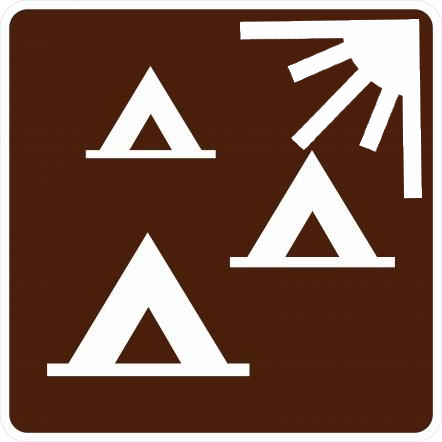
At a Glance
Adventure Type:Summer Camp
Return Time: Sun 12:00pm
Meet Time: Sat 8:45am
Est Cost: 550/Scout
Health form parts: ABB
Location: Camp Pioneer, Oregon
Location Website: Camp Pioneer
Note: note
Camp Pioneer
Go beyond merit badges and choose your own epic adventure at Camp Pioneer next summer! Yes, you get a week of creative summer camp programs to hone your Scout skills. But why not scale a mountain peak, crawl through frigid ice caves or explore the lush Mount Jefferson wilderness while you are at it! This is where GRIT grows in the wild! Established in 1936 on Pine Lake in the shadow of glorious Mt. Jefferson, the camp features rowing, canoeing, swimming, fishing, kayaking as well as Scoutcraft skills like cooking and pioneering.
Guide to Safe Scouting
Adults complete the following:- SAFE Checklist
- Boy Scouts of America Scouter Code of Conduct
- Youth Protection and Adult Leadership
- Aquatics Safety
- Camping
- Medical Information and First Aid
- Activity Planning and Risk Assessment
- Sports and Activities
- Insurance
- Transportation
Physical fitness
How are we going to prep?
Physical fitness
What age appropriate modifications can be made?
None
Gear
- Day Pack
- 10 Essentials
- Camera
- Backpack
- Compass
- Knife
Pre-Adventure Skillsets
- Be Prepared
- Buddy System
- First Aid
- Leave No Trace
- Map & Compass
- Nature
- Scouting
Sample Agenda
Sun 8:45am meet at CCC 9:00am leave for Pioneer 11:25am arrive at Pioneer 11:30am Eat lunch 12:00am Start camp tour Mon-Friday Camp Schedule Sat 10:00am Leave Camp for CCC 12:00pm Arrive at CCC
Rank Requirements
key: At Meeting / On Adventure
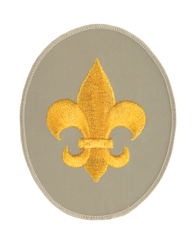
Scout
1a. Repeat from memory the Scout Oath, Scout Law, Scout motto, and Scout slogan. In your own words, explain their meaning.
1e. Repeat from memory the Outdoor Code. List the Leave No Trace Seven Principles. Explain the difference between the two.
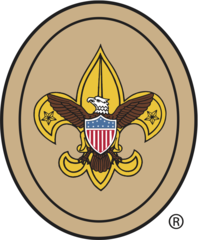
Tenderfoot
1c. Explain how you demonstrated the Outdoor Code and Leave No Trace on campouts or outings.
4a. Show first aid for the following: Simple cuts and scrapes, Blisters on the hand and foot, Minor (thermal/heat) burns or scalds (superficial, or first-degree), Bites or stings of insects and ticks, Venomous snakebite, Nosebleed, Frostbite and sunburn, Choking
5a. Explain the importance of the buddy system as it relates to your personal safety on outings and where you live. Use the buddy system while on a troop or patrol outing.
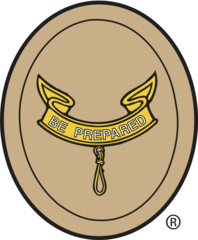
Second Class
1b. Recite the Leave No Trace Seven Principles from memory. Explain how you follow them on all outings.
3a. Demonstrate how a compass works and how to orient a map. Use a map to point out and tell the meaning of five map symbols.
3b. Using a compass and map together, take a 5-mile hike (or 10 miles by bike) approved by your adult leader and your parent or guardian.2
3c. Describe some hazards or injuries that you might encounter on your hike and what you can do to help prevent them
4. Identify or show evidence of at least 10 kinds of wild animals (such as birds, mammals, reptiles, fish, or mollusks) found in your local area or camping location. You may show evidence by tracks, signs, or photographs you have taken.
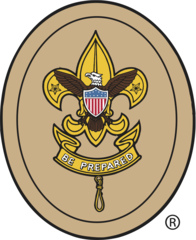
First Class
1b. Explain the potential impacts of camping, both on the environment and on other outdoor users. Explain why the Outdoor Code and Leave No Trace Seven Principles are important for protecting the outdoors.
5a. Identify or show evidence of at least 10 kinds of native plants found in your local area or campsite location. You may show evidence by identifying fallen leaves or fallen fruit that you find in the field, or as part of a collection you have made, or by photographs you have taken.
5b. Identify two ways to obtain a weather forecast for an upcoming activity. Explain why weather forecasts are important when planning for an event.
5c. Describe at least three natural indicators of impending hazardous weather, the potential dangerous events that might result from such weather conditions, and the appropriate actions to take.
5d. Describe extreme weather conditions you might encounter in the outdoors in your local geographic area. Discuss how you would determine ahead of time the potential risk of these types of weather dangers, alternative planning considerations to avoid such risks, and how you would prepare for and respond to those weather conditions.
Flier
www.Sherwood116.com
Troop 116
Summer Camp @ Camp PioneerGo beyond merit badges and choose your own epic adventure at Camp Pioneer next summer! Yes, you get a week of creative summer camp programs to hone your Scout skills. But why not scale a mountain peak, crawl through frigid ice caves or explore the lush Mount Jefferson wilderness while you are at it! This is where GRIT grows in the wild! Established in 1936 on Pine Lake in the shadow of glorious Mt. Jefferson, the camp features rowing, canoeing, swimming, fishing, kayaking as well as Scoutcraft skills like cooking and pioneering.

Summer Camp!
Camp Pioneer
Idanha, Oregon
Idanha, Oregon

Sat 8:45am - Sun 12:00pm

meet at Cedar Creek Church on < date > @ Sat 8:45am

Whole Troop!
We’ll meet at Cedar Creek Church @ Sat 8:45am and carpool to Camp Pioneer in Idanha, Oregon.
Gear
- Day Pack
- 10 Essentials
- Camera
- Backpack
- Compass
- Knife
Skills
- Be prepared
- Buddy System
- First aid
- Leave no trace
- Map & Compass
- Nature
- Scouting

Make sure to register on troopmaster,
look for the link in your email!!!
look for the link in your email!!!


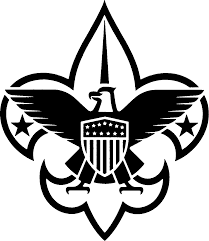
Troop 116
T-Program Planningfor Summer Camp
Prior to T-5, the PLC should have determined (and dates below):
Outing Event:________________________
Event Date:_______________
Location: ___________________________
Scout in charge: ______________________
QR Code/URL for drive
Itinerary:
Special activities and equipment needed for the outing:
T-5 Date:_______________
- Select Merit Badges
- Sign up for Merit Badges
T-3 Date:_______________
- Patrols assign/select tent partners.
- Patrols discuss gear needs and who brings what. Patrol Quartermaster makes gear list
T-1 Date:_______________
- Patrols check out tents and other camping gear.
- Patrols discuss free-time activities.
- Troop Gear Check
- Scouts complete Merit Badge prerequisites
Week 1

Month's Theme: Summer Camp
Topic: ________________
Date: _____________
Topic: ________________
Date: _____________

Activity
Description
Run By
Time
Pre-opening Activity
Opening Ceremony
- - Flag presentation
- - Oath and Law
- - Uniform inspection
Group Instruction
- - Scouting
- - Be Prepared
Skills Instruction
Scout - Tenderfoot
Scout - Tenderfoot
-

1a. Repeat from memory the Scout Oath, Scout Law, Scout motto, and Scout slogan. In your own words, explain their meaning. [Scouting]
2nd - 1st
Merit Badge
Patrol Breakouts
- - T-Minus activities (Duty roster/Menu/etc)
- - Patrol outing planning
- - Advancement check-in (see how advancement is going and what is needed -> report to SPL)
- - (Seasonal planning) Summer camp activities, APC Ideas
Game
Closing
- - Closing Flags
- - Announcements
- - SM’s minute
Total 90 minutes of meeting
After the meeting
Leadership team reviews plans for the next meeting and for the main event.
Week 2

Month's Theme: Summer Camp
Topic: ________________
Date: _____________
Topic: ________________
Date: _____________

Activity
Description
Run By
Time
Pre-opening Activity
Opening Ceremony
- - Flag presentation
- - Oath and Law
- - Uniform inspection
Group Instruction
- - Leave No Trace
Skills Instruction
Scout - Tenderfoot
Scout - Tenderfoot
-

1e. Repeat from memory the Outdoor Code. List the Leave No Trace Seven Principles. Explain the difference between the two. [Leave No Trace]
2nd - 1st
-

1b. Recite the Leave No Trace Seven Principles from memory. Explain how you follow them on all outings. [Leave No Trace]
-

1b. Explain the potential impacts of camping, both on the environment and on other outdoor users. Explain why the Outdoor Code and Leave No Trace Seven Principles are important for protecting the outdoors. [Leave No Trace]
Merit Badge
Patrol Breakouts
- - T-Minus activities (Duty roster/Menu/etc)
- - Patrol outing planning
- - Advancement check-in (see how advancement is going and what is needed -> report to SPL)
- - (Seasonal planning) Summer camp activities, APC Ideas
Game
Closing
- - Closing Flags
- - Announcements
- - SM’s minute
Total 90 minutes of meeting
After the meeting
Leadership team reviews plans for the next meeting and for the main event.
Week 3

Month's Theme: Summer Camp
Topic: ________________
Date: _____________
Topic: ________________
Date: _____________

Activity
Description
Run By
Time
Pre-opening Activity
Opening Ceremony
- - Flag presentation
- - Oath and Law
- - Uniform inspection
Group Instruction
- - First Aid
Skills Instruction
Scout - Tenderfoot
Scout - Tenderfoot
-

4a. Show first aid for the following: Simple cuts and scrapes, Blisters on the hand and foot, Minor (thermal/heat) burns or scalds (superficial, or first-degree), Bites or stings of insects and ticks, Venomous snakebite, Nosebleed, Frostbite and sunburn, Choking [First Aid]
2nd - 1st
-

3c. Describe some hazards or injuries that you might encounter on your hike and what you can do to help prevent them [First Aid]
Merit Badge
Patrol Breakouts
- - T-Minus activities (Duty roster/Menu/etc)
- - Patrol outing planning
- - Advancement check-in (see how advancement is going and what is needed -> report to SPL)
- - (Seasonal planning) Summer camp activities, APC Ideas
Game
Closing
- - Closing Flags
- - Announcements
- - SM’s minute
Total 90 minutes of meeting
After the meeting
Leadership team reviews plans for the next meeting and for the main event.
Week 4

Month's Theme: Summer Camp
Topic: ________________
Date: _____________
Topic: ________________
Date: _____________

Activity
Description
Run By
Time
Pre-opening Activity
Opening Ceremony
- - Flag presentation
- - Oath and Law
- - Uniform inspection
Group Instruction
- - Buddy System
- - Nature
Skills Instruction
Scout - Tenderfoot
Scout - Tenderfoot
-

5a. Explain the importance of the buddy system as it relates to your personal safety on outings and where you live. Use the buddy system while on a troop or patrol outing. [Buddy System]
2nd - 1st
-

5b. Identify two ways to obtain a weather forecast for an upcoming activity. Explain why weather forecasts are important when planning for an event. [Nature]
-
5c. Describe at least three natural indicators of impending hazardous weather, the potential dangerous events that might result from such weather conditions, and the appropriate actions to take. [Nature]
-
5d. Describe extreme weather conditions you might encounter in the outdoors in your local geographic area. Discuss how you would determine ahead of time the potential risk of these types of weather dangers, alternative planning considerations to avoid such risks, and how you would prepare for and respond to those weather conditions. [Nature]
Merit Badge
Patrol Breakouts
- - T-Minus activities (Duty roster/Menu/etc)
- - Patrol outing planning
- - Advancement check-in (see how advancement is going and what is needed -> report to SPL)
- - (Seasonal planning) Summer camp activities, APC Ideas
Game
Closing
- - Closing Flags
- - Announcements
- - SM’s minute
Total 90 minutes of meeting
After the meeting
Leadership team reviews plans for the next meeting and for the main event.